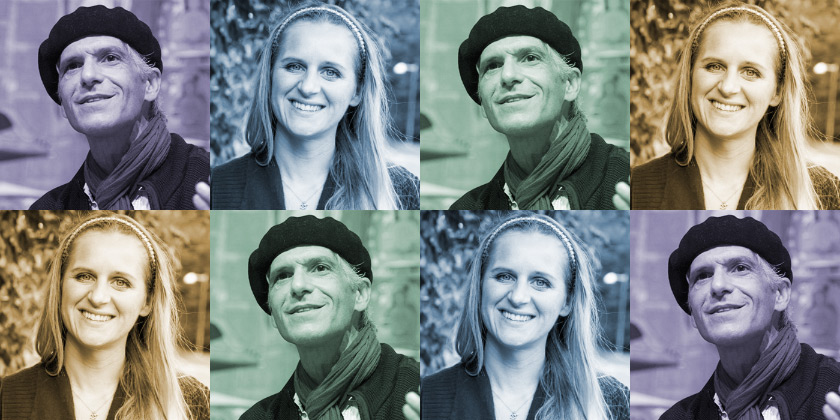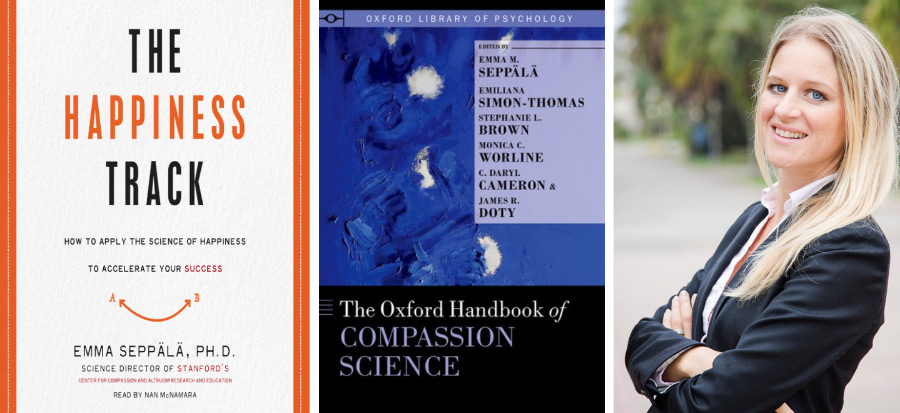
Editor’s Note: Nalanda Institute’s Director, Dr. Joe Loizzo recently sat down with Dr. Emma Seppälä for a conversation about compassion science and their hopes for the future. Dr. Seppälä is the Science Director at The Center for Compassion and Altruism Research at Stanford University. We present a small portion of their conversation here.
Dr. Seppälä is also our Guest of Honor at our 10th Annual Benefit on June 12th. Her talk entitled “Compassion Science: Healing Our Interconnected World” further explores the topics presented here. Find out more about our forthcoming benefit.
Joe Loizzo: Welcome, Emma, and thanks so much for taking the time to speak with me about your work in the science of compassion. First of all, maybe you could fill us in about how you found your way to your unusual career.
Emma Seppälä: While I was doing my master’s degree at Columbia in East Asian languages in the late 90’s, I took a class with Bob Thurman, and decided to focus on Buddhist Studies. That lead me to the seminar you gave on Science, Spirituality and Healing in the Tibetan tradition, where I remember you urged me to go to a talk at Union Seminary by Richie Davidson and Dan Goleman on meditation research, remember?
By Joe Loizzo

Editor’s Note: In this post Nalanda Institute’s Founder and Director, Dr. Joe Loizzo reviews two books written and edited by Dr. Emma Seppälä, this year’s Guest of Honor at our 10th Annual Benefit (June 12, 2019). As you’ll see, her writing, research, and position as Science Director of the Stanford Center for Compassion and Altruism Research aligns perfectly with Nalanda Institute’s mission. Read on to find out more about compassion in action.
Review: The Happiness Track: How to Apply the Science of Happiness to Accelerate Your Success (HarperOne, 2016), by Emma Seppälä, Ph.D.
For most of the modern age, our scientific view of human nature and our understanding of the social emotion of compassion have been drifting further and further apart. This is no accident. It reflects the widening gulf between modern science and religious ethics that has caused such a troubling divide in human culture and consciousness in our age. Specifically it reflects an intentional distortion of Darwin’s view of human “fitness” to mean that the traditional ethical values of love and compassion conflict with our natural strengths, and that such emotions are in fact sentimental weaknesses. Quietly over the last five decades, biology has begun to heal the modern divide and expose this distortion, helping us rediscover the wisdom in Darwin’s observation that “communities with the greatest number of sympathetic members would flourish best.”
